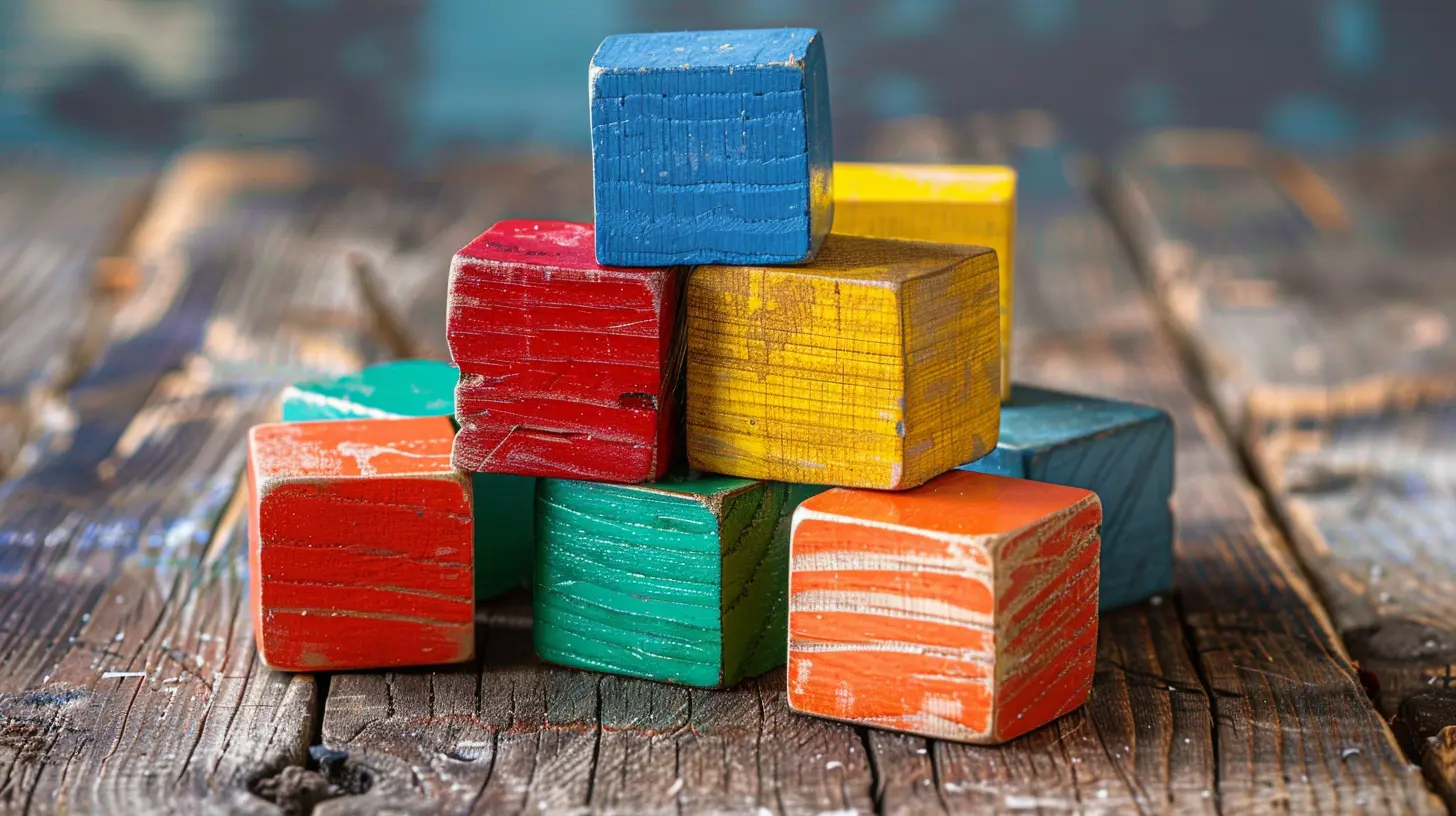Building a Strong Foundation: The Importance of Early Math Skills
22 May 2025
Mathematics is often seen as a subject filled with numbers, equations, and complex computations. But at its core, math is about problem-solving, logical thinking, and making sense of the world. Developing strong early math skills isn't just about acing future algebra tests—it's about shaping a child's ability to analyze, reason, and think critically.
So, why is early math so important? And how can parents and educators support young learners in building this crucial foundation? Let’s dive in! 
Why Early Math Skills Matter
Math is Everywhere
Think about it—math is woven into almost every aspect of daily life. From counting steps to measuring ingredients while baking, children encounter math long before they enter a classroom. When they grasp basic mathematical concepts early, they navigate the world with greater confidence.A Strong Start Equals Long-Term Success
Research shows that early math skills are one of the best predictors of academic achievement—not just in math but in other subjects like reading and science as well. Children who develop math skills early tend to perform better throughout their school years and beyond.Boosts Problem-Solving and Critical Thinking
Math isn’t just about numbers; it’s about logical reasoning. By practicing math, kids learn how to identify patterns, think critically, and solve problems systematically—skills that help in everyday decision-making.
Foundational Math Skills Every Child Needs
Before children start learning advanced concepts like fractions or algebra, they need to master basic math skills. These core skills are essential in fostering a strong foundation.1. Number Sense
This is the ability to understand and work with numbers. It includes recognizing numbers, counting objects, and understanding basic concepts like "more than" or "less than."How to Develop It:
- Count objects during play (e.g., "How many blocks do you have?")
- Use everyday opportunities to talk about numbers (e.g., "You have two cookies. If I give you one more, how many will you have?")
2. Recognizing Patterns
Patterns are all around us—on clothes, in nature, even in daily routines. Recognizing patterns helps children predict what comes next, which strengthens their logical thinking.How to Develop It:
- Encourage kids to create patterns with toys, like arranging colored blocks in a sequence.
- Point out and discuss patterns in real life (e.g., "Look at your socks! Stripes of blue, red, blue, red… What comes next?").
3. Basic Addition and Subtraction
Understanding basic addition and subtraction sets the foundation for more complex arithmetic later on.How to Develop It:
- Use real-life examples, like giving and taking away toys.
- Play simple math games that involve adding or subtracting objects.
4. Spatial Awareness and Geometry
Knowing shapes, sizes, and how objects relate to each other in space is crucial for understanding geometry later on.How to Develop It:
- Point out different shapes in the environment ("That sign is a triangle!").
- Use puzzles and building blocks to develop spatial reasoning.
5. Measurement and Comparisons
Kids should understand basic measurement concepts like length, weight, and volume.How to Develop It:
- Let children compare objects (e.g., "Which toy is heavier?").
- Use measuring cups and rulers while cooking or crafting. 
How Parents and Teachers Can Support Early Math Learning
Make Math Fun and Engaging
Math shouldn't feel like a chore. When math is introduced in a fun and interactive way, children are much more likely to develop a positive attitude toward it. Use games, puzzles, and hands-on activities to make learning enjoyable.Incorporate Math in Daily Life
Everyday activities are filled with mathematical opportunities. Whether it's counting apples at the grocery store or dividing a pizza into slices, real-world applications help children see the relevance of math in their lives.Encourage Questions and Curiosity
Math is about exploration. When kids ask, "Why does this work?" or "What if I do it differently?" they’re developing critical thinking skills. Encourage them to experiment and find solutions in their own way.Praise Effort, Not Just Correct Answers
Math can sometimes be frustrating, and children might feel discouraged if they don’t get the right answer. Instead of focusing solely on correctness, praise their effort, creativity, and problem-solving skills. This reinforces a growth mindset.
Overcoming Common Math Struggles
Even with the best support, some children might struggle with math. That’s completely normal! The key is to identify challenges early and find ways to address them.Difficulty with Number Recognition
Some kids have trouble distinguishing numbers or remembering them. Using visual aids, flashcards, and number songs can help reinforce learning.Fear of Math (Math Anxiety)
If a child is afraid of math, it's often because they associate it with stress or failure. Encourage a relaxed and playful approach, and remind them that mistakes are part of learning.Struggling with Word Problems
Word problems can be tricky because they require reading comprehension and mathematical reasoning. Break them down into smaller steps and let kids act them out with objects for better understanding.The Long-Term Benefits of Early Math Skills
When children develop strong early math skills, the benefits extend far beyond the classroom.- Better Academic Performance: Math proficiency is linked to overall school success.
- Improved Logical and Critical Thinking: These skills help in decision-making and problem-solving in daily life.
- Greater Confidence: Kids who feel comfortable with math are more likely to approach challenges with confidence.
- Career Opportunities: Many high-paying careers—engineering, technology, finance—require strong math skills.
Final Thoughts
Building a strong foundation in math early on sets children up for success—not just in their studies, but in life. The best way to nurture a love for math is through everyday experiences, engaging activities, and a supportive learning environment.So, let’s treat math not as a dreaded subject, but as a fun and essential skill that helps kids unlock the wonders of the world. Who knows? The child you encourage today might become tomorrow’s brilliant problem-solver, scientist, or engineer!
all images in this post were generated using AI tools
Category:
Math SkillsAuthor:

Bethany Hudson
Discussion
rate this article
3 comments
Runehart Mathews
Great insights! Early math skills truly set the stage for lifelong learning and success.
June 6, 2025 at 4:08 AM

Bethany Hudson
Thank you! I completely agree—early math skills are crucial for future learning and success.
Virginia Morris
This article highlights the crucial role early math skills play in a child's development. By fostering a solid foundation in mathematics, we empower young learners to approach complex concepts with confidence, ultimately setting them up for academic success throughout their educational journey.
May 30, 2025 at 4:48 AM

Bethany Hudson
Thank you for your insightful comment! I completely agree that early math skills are essential for building confidence and academic success in children.
Rex Kelly
Thank you for sharing this insightful article! Early math skills truly lay the groundwork for future learning. It's crucial for parents and educators to prioritize these foundational concepts for children's success in mathematics.
May 25, 2025 at 3:12 AM

Bethany Hudson
Thank you for your thoughtful comment! I'm glad you found the article insightful. Early math skills are indeed essential for long-term success.



